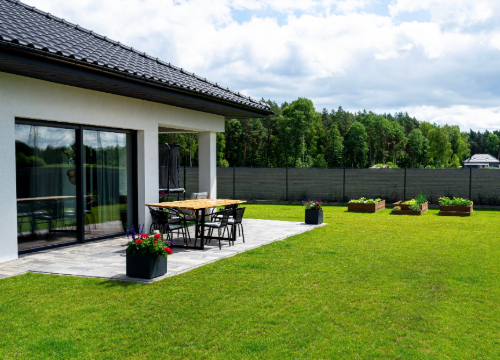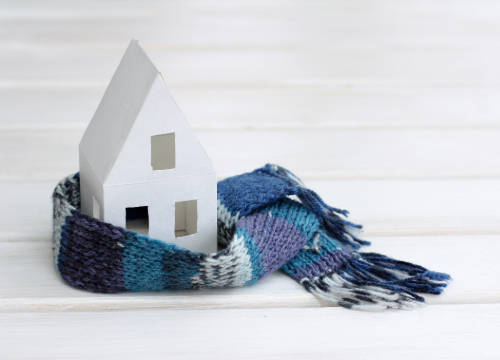When you're busy packing, cleaning and moving, you probably don’t want to add another task to your long list of things to do. However, before you settle in, it's a good idea to think about security and safety in your new home.
While your immediate thoughts might be about redecorating and what colour to paint the walls, there might be more important issues to worry about.
There could be potential safety risks within your new property that you may not've considered, so it's worth investing a little time checking things over.
Change the locks
You don’t know who has had the keys to your new home before - neighbours, previous tenants or relatives of the previous occupants. Make it a priority to update all the key codes for security systems and replace all the locks on the property. It’s a simple step but takes away a big risk.
While you’re changing the door locks, take time to check the windows. If any are loose or don’t have locks, organise to get them sorted. If you don’t have keys for existing window deadlocks, install new ones as this is a safety hazard as well as being annoying.
Also think about your spare key for when someone inevitably locks themselves out. In a perfect world you shouldn’t have a spare key outside, but if you must, don’t put it in an obvious place. Consider buying a lockbox with a code, so that even if someone finds the key, they’ll have to crack the code to use it.
Do the gardening
Trim back big bushes and trees to eliminate or reduce hiding places for prowlers. In particular, do this for bushes that obscure windows. Consider having gravel laid under your windows, as it’s noisy and helps to dissuade tip-toeing intruders. Install outdoor lighting that is motion-activated as a further deterrent to burglars.
Install a security system
There’s a great range of options for a home security system. You can go all-out and get hard-wired cameras, motion activated sensors on all windows and doors, and pay to have it monitored. Or consider a DIY security system, where you can buy the items you want - such as a front door camera or motion sensor - and connect them to a central hub.
Think about window dressings
While having lots of light flooding into your home is a positive thing, it means that potential burglars can see into your home too, allowing them to do a stocktake of what they’d like to steal. It can cost a bit to set it up, but curtains and other window treatments, such as window tinting, offer security and privacy.
Say hello to your new neighbours
When you get a minute, pop over and introduce yourself to your new neighbours and give them the family run-down…kids, pets and anything else relevant. It’s a nice thing to do, but also means you’ve got an extra set of eyes on the place.
New smoke detectors
If the house doesn’t have smoke alarms, install some. Smoke alarms cannot detect smoke through a closed door, so it's recommended to install one in every bedroom, hallway and living room. Don't install smoke alarms in the kitchen, laundry or bathroom as smoke and steam may trigger them and give false alarm. Instead you can protect these areas with a heat alarm. A heat alarm is designed to active when the room reaches a set temperature, so won't go off every time you accidentally burn the toast, or have a shower.
If there are smoke alarms in the home already, replace the batteries if needed and make sure there are alarms in all the right places. Consider carbon monoxide detectors, especially if you have gas heating or cooking.
Check the dryer
Laundry fires caused by dryers are more common than you think. Make sure there's proper ventilation and air space around your clothes dryer. And remember to remove lint and dryer fluff after each use. Static electricity and build up of heat can cause dust, lint and chemical residue on clothing to catch fire.
Find the water supply valve and check the power box
Put these tasks near the top of your to-do list, because you don’t want to be running around looking for the valve when the water is exploding from the wall! Hopefully, the power fuse box is all labelled, but if it’s not you’re going to need to get someone to stand in rooms while you turn fuses off and on.
Take time today to make your home a safer place
It’s not difficult to turn your new house into a safe home and checking all the safety details will help you to get acquainted with the ‘ins and outs’ of your new abode. Once you’ve got the basics done, you can start redecorating!
You can also visit our home insurance page to decide what type of home insurance is right for you and your family.
You might also like...
-
 December 2024Lifestyle Blog | State Insurance
December 2024Lifestyle Blog | State InsuranceSurviving the holidays
-
 September 2024Lifestyle Blog | State Insurance
September 2024Lifestyle Blog | State InsuranceSpring prep your home and garden.
-
 June 2024Lifestyle Blog | State Insurance
June 2024Lifestyle Blog | State InsurancePreparing your home for winter
